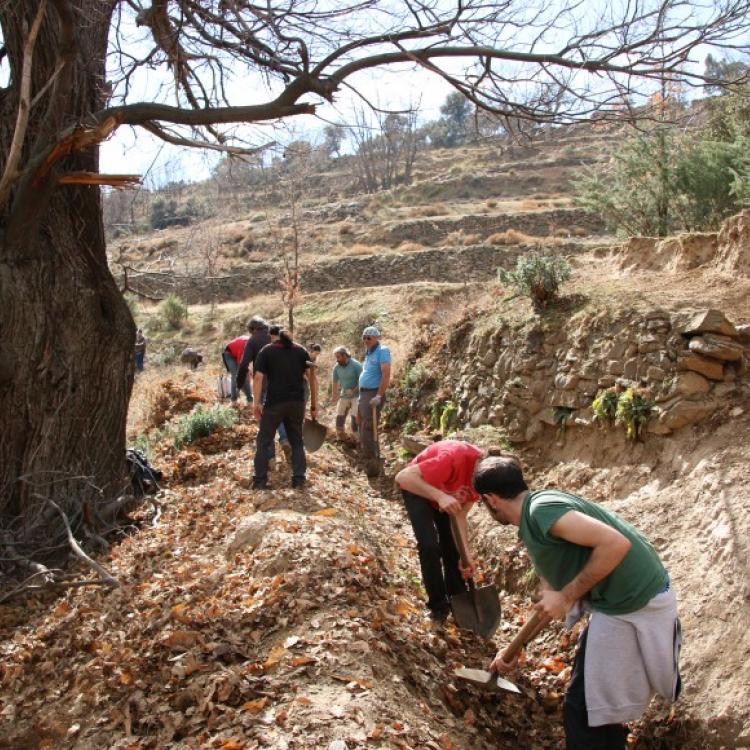MEMOLA
The creation of the traditional irrigation systems in the Iberian Peninsula can be dated back to the first establishment of the Islamic communities in the 8th century. In the Sierra Nevada range, irrigation infrastructures are part of a complex socio-ecosystem starting from the snow-capped peaks. Irrigation contribution to farmland allowed not only an increase in productivity and the introduction of new crops, but also an improvement in soil fertility. Irrigation systems include a complicated distribution and social management of water, managed jointly by farmers. They are also a sophisticated and delicate network of relations with the environment and natural resources (water, soil, plants and animals), including high mountain artificial aquifers recharge, the creation of artificial pastures, forestry or the generation of intensively cultivated terraced spaces.
Despite its importance, since the 1960s, a gradual abandonment of many of these irrigation systems has occurred. This situation was caused by changes in the economic system linked to industrialization and globalization, which provoked an agrarian crisis, a rural exodus and important cultural changes in rural areas. The work of recovery and implementation of some of these historical systems of irrigation is carried out in collaboration between researchers and local irrigators communities. The decisions, before and during the activities, are made together. Recovery work is carried out by traditional techniques. From 2014 to 2017 the MEMOLA project has launched 9 irrigation channels, along with six irrigating communities, for a total 20 kilometres.

